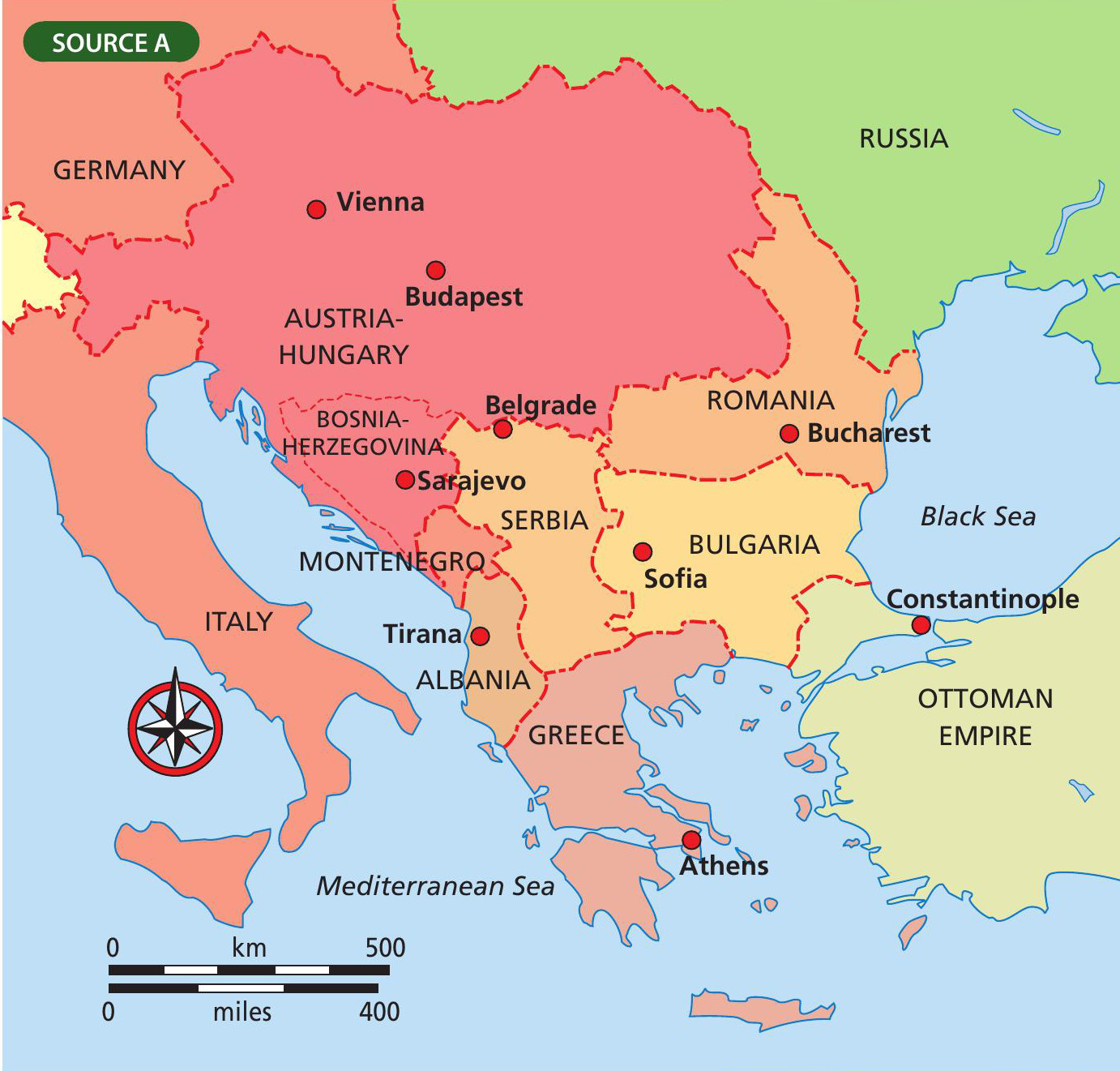
In June 1914, two shots were fired from Gavrilo Princip’s pistol in a busy Sarajevo street. Four minutes later, Archduke Franz Ferdinand was dead. Four weeks after that, the first declaration of war was announced. Four years later, soldiers from Britain remained huddled in the trenches of the Western Front, facing their German counterparts on the other side of no-man’s-land. How, they wondered, did the assassination in Bosnia of an Austrian by a Serb lead to a global war involving Britain, its empire, the USA, Japan and many others?
The First World War grew out of a territorial dispute in an area of southeast Europe known as the Balkans (see Source A). The Ottoman empire, ruled from present-day Turkey, had controlled the Balkans and their population of different ethnic groups since the sixteenth century. At the turn of the twentieth century, however, the Balkans were suffering in a power vacuum. The Ottoman empire was in terminal decline, and during the nineteenth century Greece, Serbia, Montenegro and Romania freed themselves from Ottoman control. These countries had strong nationalist movements and wanted to rule themselves, but they were also small and weak, and seemed ripe for the picking by another nation — in particular, Austria-Hungary.
Your organisation does not have access to this article.
Sign up today to give your students the edge they need to achieve their best grades with subject expertise
Subscribe




